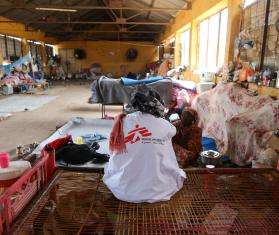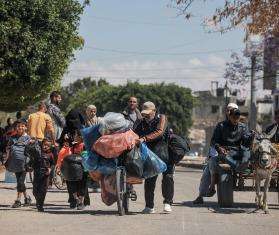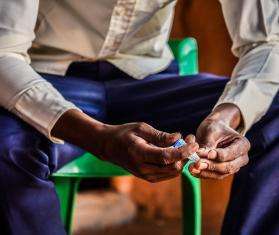Almost three months after suspending medical activities in two detention centers in Tripoli, Libya, and losing access to another, Doctors Without Borders/Médecins Sans Frontière (MSF) has reached an agreement with Libyan authorities to resume activities in all three centers to provide vital medical care to detained migrants and refugees.
This development comes after recent talks between MSF and Libya’s Directorate for Combating Illegal Migration (DCIM) in which MSF was assured that certain basic conditions would be met in the detention centers, enabling our teams to resume activities in line with medical ethics and humanitarian principles.
The conditions agreed on include preventing the use of violence against detained people and ensuring the safety of MSF teams, allowing our medical staff unhindered and sustained access to the detention centers, allowing detained people unfettered access to our medical services, and ensuring full respect for the medical confidentiality of people held in the detention centers.
On September 15, MSF teams restarted mobile clinic visits to Al-Mabani (also known as Ghout al-Sha’al), Abu Salim, and Shara Zawiya detention centers in Tripoli. Our teams were able to provide much needed medical care and psychosocial support to people held in these facilities who otherwise would have very minimal access to health care.
During the first week of resumed activities, MSF doctors examined and treated 404 patients, including 30 children under the age of 15, mainly suffering from skin diseases, gastrointestinal disorders, and upper respiratory tract infections—conditions attributable to the poor conditions they are held in. Our medical team also facilitated the emergency referral of 28 patients to receive urgent medical care in MSF-supported clinics in Tripoli.
MSF welcomes the assurances made by Libyan authorities that they would address the concerns that compelled the organization to suspend activities in June, but continues to call for detention centers to be closed and detainees to be released and provided with adequate humanitarian assistance and protection services, including voluntary repatriation and resettlement out of Libya.
MSF has worked in detention centers in Libya since 2016, providing people with basic health care and psychosocial support. MSF teams also identify vulnerable people in detention centers and refer patients requiring specialist care to hospitals across Libya.
Between January and August 2021, MSF teams working in detention centers in Tripoli provided medical treatment to more than 10,000 patients, carried out 10,910 medical consultations, and facilitated the referral of 439 patients for specialist care to hospitals and clinics across Tripoli.
In Zuwara, a new MSF program provides medical, psychosocial, and protection services to refugee and migrant communities. In Bani Walid, MSF teams provide general health care and medical referrals to refugees and migrants who have escaped captivity and to victims of torture and trafficking.
MSF also provides technical and hands-on support to Libya’s National Tuberculosis Programme (NTP), run by the National Center for Disease Control (NCDC), to diagnose and treat Libyans and non-Libyans with tuberculosis (TB). MSF also runs a TB program in Misrata.




